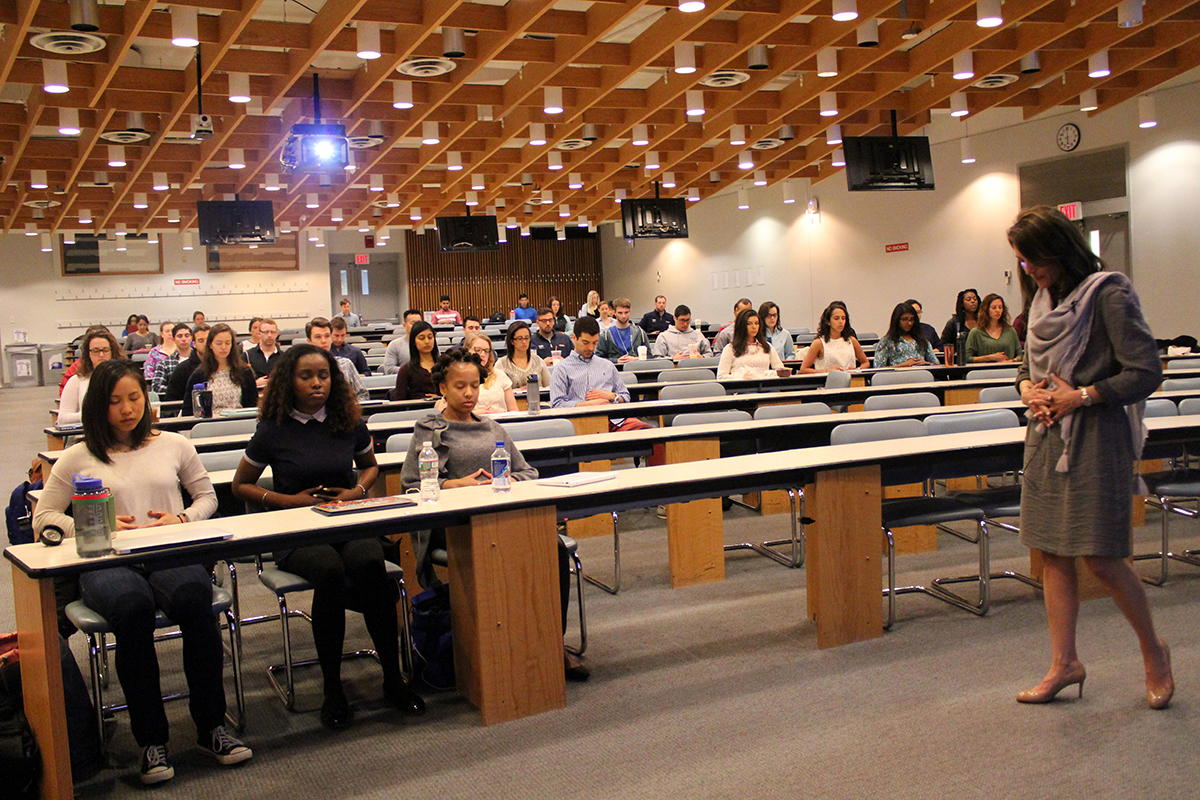At Tufts Dental School, Students Learn to Relax

Pastan teaches Tufts students/Photo provided
Dental schools are notoriously demanding environments. Rigorous workloads, high-pressure situations, and the stresses of patient care can keep students on-edge for the better part of their graduate educations.
At the Tufts University School of Dental Medicine, one woman is trying to change that—with something as simple as breath.
For the last 10 months, Christina Pastan, a practicing endodonist and veteran dental educator, has helped ease students’ stress with meditation and mindfulness training. “We’re going to have a culture where the students are walking around with their articulator in one hand and their yoga mat in the other,” she says. “The students are feeling that it’s okay to pursue these practices, and they’re more open-minded to them.”
Pastan was inspired to launch her program after coming upon a student in the throes of a panic attack as she prepared for surgery. To calm her down, Pastan—a long-time yogi—taught the student an ancient yogic breathing technique, which centered her enough to successfully perform the procedure.
“I thought, Oh my god. That woman is in her seventh year of dental education. She’s already a doctor. And she does not know how to self-regulate,” Pastan remembers. “I thought, There are more students in there that need to know how to do this.”
After years of working with Tufts’ administration and getting certified from the Kripalu Center for Yoga and Health, Pastan was named Tufts’ first-ever director of mind-body wellness last July. Under Pastan, Tufts now offers weekly drop-in meditations, and all first-year dental students go through a mandatory, three-week, mind-body wellness program. Faculty members have even tapped Pastan to teach mindfulness techniques to their entire departments.
The program will only expand from here, Pastan says, eventually weaving mind-body wellness throughout the school’s entire four-year curriculum. It’s a simple fix, but a meaningful one.
“If we have stress[ed] patients and we’re stressed [ourselves], that’s not a good combination,” Pastan says. “This is the most meaningful work I’ve done in dentistry, in that I’m really helping people connect with themselves, and feel what it’s like to be human.”


